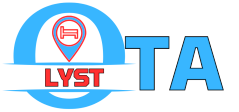Journey into the realm of transformative possibilities as we explore how business intelligence tools can metamorphose your hospitality business, elevating the guest experience to new heights.
In an era fueled by technological advancements and an abundance of data, decision-makers are navigating the quest for more profound insights into their operations, guests, and the dynamic landscape of the market.
A beacon shining brightly on this path of knowledge-based management is the burgeoning adoption of business intelligence tools. These tools, akin to skilled navigators in the digital landscape, illuminate a trail towards informed decision-making, unveiling a wealth of potential that can revolutionize your hospitality business. Join us as we delve into the realm where data-driven intelligence meets the artistry of hospitality, crafting an enriched and personalized experience for every guest.
Understanding Business Intelligence in the Hotel Industry
Hotel Business Intelligence, or BI, can be described as data-oriented decision support systems that use reporting and data analysis tools. These systems enable hotel managers and other stakeholders to have an in-depth understanding of their operations and performance metrics. The value provided by these tools is two-fold and includes both data gathering and interpretation.
Modern business intelligence softwares has become indispensable in the hospitality industry, particularly in effectively harnessing and interpreting a wealth of data sourced from various operational systems, guest interactions, online reviews, and other customer touchpoints, and market benchmarks. This data can be an overwhelming mine of information, but with the right tools in place, they can be converted into actionable insights that can fuel growth and profitability.
BI tools provide a combination of dashboards and analytics that allow hotel operators to delve deep into both historical trends and future projections, providing a multifaceted picture of how the hotel is, has been, and might be performing, paving the way for strategic decisions. In doing so, they serve as the bridge that distinguishes business intelligence and analytics, with the former focusing on data collection and the latter on data interpretation.

The Transformative Impact of Business Intelligence Tools
For hospitality professionals, the industry provides a dynamic environment where challenges crop up in different forms and intensities. Understanding, monitoring, and effectively addressing these challenges, such as obtaining timely information and making informed business decisions, become easier and more streamlined with the aid of hotel business intelligence solutions.
These solutions function by automating the collection, organization, and reporting of information, which in turn assist in spotting trends and offering crucial insights that can fine-tune operational practices, enhance decision-making processes, and identify opportunities for growth and improvement. As a result, hotels are better able to provide an improved guest experience and foster more effective revenue management strategies, two aspects that directly impact the bottomline.
But the benefits do not end here. By integrating hotel business intelligence solutions, the entire hospitality industry gains an upper hand in anticipating market shifts, calculating responses, and adapting swiftly.
Benefits of Business Intelligence and Analytics in Hotels
Emerging as a transformative force in the industry, business intelligence and analytics tools play a pivotal role in the much-needed evolution of the hotel industry. These tools have become instrumental in forecasting demand, a key untapped aspect in effective revenue management.
Improved Guest Experience
Through the use of business intelligence tools, hotels are able to collect and analyze guest reviews, a much overlooked but incredibly potent source of information. This analysis can aid hotels in refining guest experience, ensuring an increase in satisfaction and a corresponding loyalty, possibly even culminating in the holy grail of customer engagement – brand advocacy.
Competitive Analysis
The benefits offered by these tools are manifold and significant in that they can provide a distinctive competitive advantage. One principal advantage is competitive analysis, which allows hotels to gauge their current market position relative to their competitors and recalibrate strategies in response.
Optimum Distribution
When connected to the Hotel Management Software stack these tools also contribute to the optimization of distribution, thus ensuring maximum room bookings through the most effective channels. This is highly crucial in an era where customer acquisition has multiple touchpoints and the cost of customer acquisition is on a constant uptick.
Enhanced Revenue
Another key facet where BI tools prove their worth is in cost reduction. By identifying operations inefficiencies and offering solutions to mitigate them, hotels can improve their overall operational efficiency. On the other end of the spectrum, revenue augmentation is facilitated through an in-depth analysis of guest behaviors, ensuring that hotel offerings are aligned with guest preferences, thereby optimizing the potential for upselling and cross-selling.

In the fast-paced world of hospitality where timing can make all the difference, BI tools offer the power of real-time reporting, providing timely, relevant, and impactful insights that allow for swift and accurate decision making.
How to choose the right Hotel Business Intelligence Solutions
Hotel Business Intelligence (BI) has emerged as a strategic investment that empowers hotels to have better control over their revenue, especially when it comes to a highly dynamic component like room rates. The essence of BI lies in the effective collection, thorough analysis, and accurate interpretation of data, ensuring it is accurate, relevant, and actionable.
When selecting BI tools, hoteliers need to consider a holistic assortment of factors that cater to their unique needs based on various aspects such as the size of their hotel, the location, the target market, branding and positioning, competitive surroundings, associated costs, and of course, the strategic outlook. This is critical because different tools cater to different needs, and understanding these needs is the first step toward selecting suitable business intelligence software.
The cost of a BI tool can vary as per the size of the hotel, but importantly, the potential return on investment should always be at the core of the decision-making process. After all, BI is not a cost factor, but an investment in the future.
Exploring Hotel Business Intelligence Tools
Business Intelligence (BI) tools on offer today encompass a wide array of functions and capabilities to serve the diverse needs of hoteliers. These range from facilitating a deep-dive analysis of guest feedback, to monitoring competitors, forecasting demand, analyzing market trends, predicting future outcomes, and other factors impacting hotel operations.
BI tools also offer robust functionalities that build on the other capabilities and provide valuable insights into hotel operations, market dynamics, guest behavior, and local and global trends. These insights prove beneficial in optimizing pricing strategies, managing the online reputation of the hotels, understanding and responding to guest preferences, streamlining operations, and a host of other processes that collectively contribute toward building a successful hotel business.
When deciding on BI tools, it helps to understand what is on offer and what it is that your business precisely needs.
BI tools, based on their function, can be categorized as:
- Descriptive Analytics: Offering a detailed retrospective view.
- Predictive Analytics: Leveraging past data to predict future trends.
- Prescriptive Analytics: Providing actionable recommendations based on data insights.
Implementing and making the most of these BI tools may seem overwhelming, but with the right hospitality services, you can easily navigate this process.
Tools like PMS (Property Management System) and CM (Channel Manager) only assist lodging establishments in operating more simply, saving time, and being more efficient compared to not using them. However, that is not the root of growth or the challenges faced in the accommodation business. If you want to effectively manage OTA channels and create stable growth, you should have a clear understanding of how OTA platforms operate, such as their nature, operational models, and how they display, calculate displayed prices, and collect prices (after deducting commissions). Of course, larger hotels that want to approach it systematically will do it synchronously from the beginning, but smaller lodging establishments wanting to reduce operational costs should overlook it and focus on optimizing display and providing outstanding customer care.
Synthesized by: OTA Lyst












































